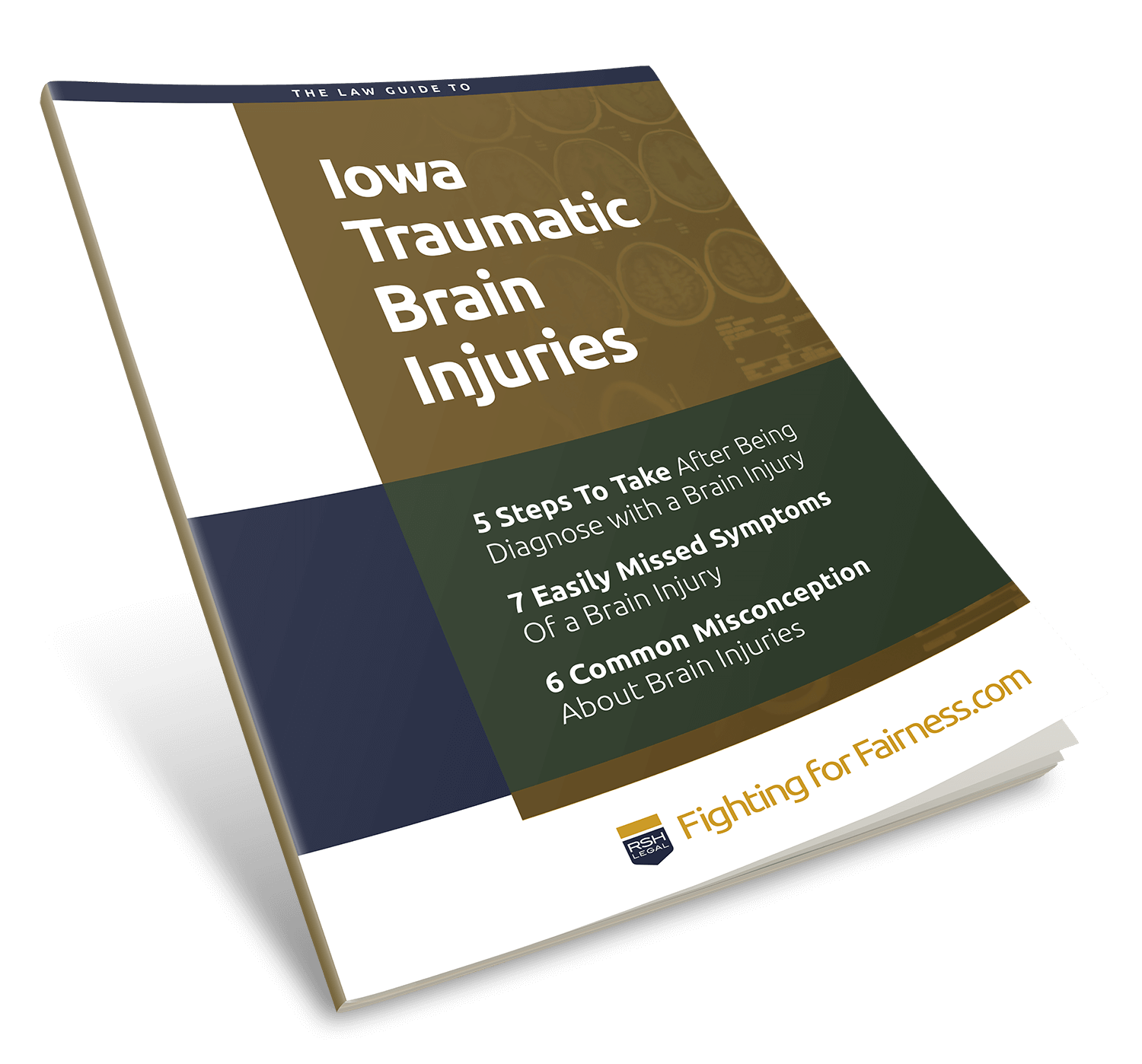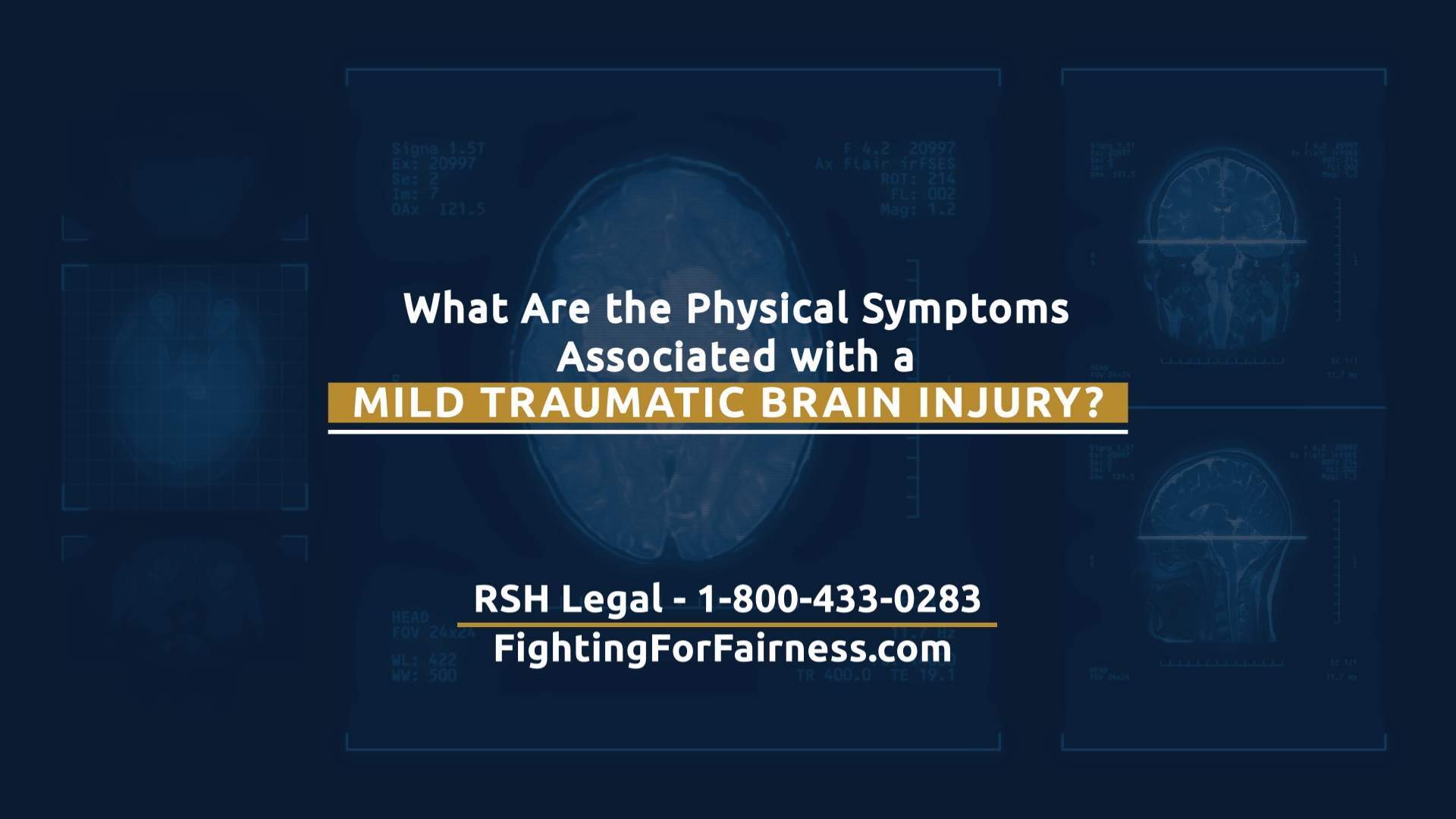There are a lot of myths out there about brain injuries. If you’ve suffered a TBI (traumatic brain injury) from a car crash or work accident in Iowa, you need to know the truth. Here are the 6 most common misconceptions our lawyers hear on a regular basis about brain injuries – and the truth behind each one:
Misconception #1: “I didn’t hit my head, so I don’t have a brain injury.”
You do not need to hit your head to suffer a brain injury – a simple jolt to the body is enough to cause damage. Your brain may twist or jostle around inside your head, causing it to hit against your skull. Even if you didn’t hit your head, a traumatic brain injury can still occur.
For example, if you’re in a car accident, your airbag may stop you from hitting your head on the steering wheel. However, the sudden deceleration or slowdown from the crash means your brain can still smash against your skull. You may not see or feel this contact happen, but it can do a lot of harm.
Misconception #2: “I never lost consciousness.”
Only 10% of people lose consciousness when they experience a traumatic brain injury. Being conscious is more of a scale than a question of “Yes, I was conscious the whole time” or “No, I lost consciousness.” You may not know or even remember if you passed out.
If you feel as though your head connected with another object or your body was jolted enough to whip your head back and forth or side to side, you should immediately assume you’ve experienced a brain injury.
Misconception #3: “My MRI or CT scan was clear.”
MRIs and CT scans only show structural injuries of the brain. Structural injuries can be seen when there is a physical change to the brain, like a penetrating wound.
However, not all brain injuries are structural. For example, a concussion is often a functional injury, which means it affects how the brain functions. Functional injuries occur when neurological pathways are altered or brain cells are killed, but the structure of the brain is not changed.
While a clear scan can be good news, you may still have suffered a serious injury.
Misconception #4: “I was wearing a helmet.”
Wearing a helmet is a great safety practice. However, its purpose is to protect your skull from cracking in the event of an accident. The helmet does not keep the brain from knocking into the skull.
A helmet will also not protect from any rotational injuries of the brain. These are caused when the brain twists around inside the skull. Rotational injuries cause tearing of the brain tissue and is a common injury during car accidents.
Misconception #5: “It’s only a concussion, not a brain injury.”
Concussions are now considered a TBI and are treated just like any other brain injury. Concussions can be especially serious for student athletes that go back to playing sports before their brain is fully healed. Schools and coaches are beginning to recognize the severity of concussions and student athletes are now monitored closely.
Misconception #6: “It’s been an entire month, so my brain should be healed by now.”
If you have experienced a TBI, there may be lasting effects or unexpected complications after the injury. 10-15% of people who have suffered a brain injury may have symptoms for years, or even permanently. These side effects can include persisting cognitive and behavior problems. Adults over the age of 40 often have more difficulty recovering from traumatic brain injuries.
A brain injury never fully “goes away.” There are long-term consequences resulting from a brain injury, even if symptoms are not constantly present. These can include:
- Chemical changes in the brain
- Seizures
- Increased risk of stroke
- Increased risk of developing Alzheimer’s later in life
- Increased risk of a second brain injury
If you have sustained a brain injury due to the fault of someone else, we can help you get a fair settlement for your injuries. Call RSH Legal at 1-319-774-1783 and speak with one of our experienced Iowa brain injury lawyers today.




